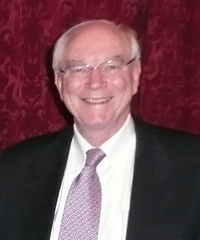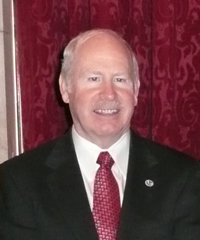NOAA Scientists Among Finalists for Top Public Service Awards
June 24, 2008
Two NOAA scientists were selected by the Partnership for Public Service as finalists for the 2008 Service to America Medal. The scientists were selected for their life-saving and educational inventions.
Eddie Bernard, Ph.D., director of NOAA’s Pacific Marine Environmental Laboratory in Seattle, was cited for his creation of a tsunami detection system. Named as a finalist, the committee cited his contribution that has “dramatically increased warning times and decreased the risk of a catastrophic loss of life.”
Also selected was Alexander MacDonald, Ph.D., director of NOAA’s Earth System Research Laboratory in Boulder, Colo., and deputy assistant administrator of NOAA’s Office of Oceanic and Atmospheric Research. The Partnership for Public Service cited MacDonald’s invention of Science on a Sphere®, a three-dimensional teaching tool that makes “Earth-system science more exciting and accessible,” as the project that earned him his finalist spot.
The Partnership for Public Service has honored the “best in the federal workforce” with the Service to America medal since 2002. More than 3,000 federal employees have been nominated for this award since the program began. Eight winners will be named on September 16, during an awards ceremony in Washington, D.C.
“It is so gratifying when NOAA’s science and innovation is recognized at this level,” said Richard W. Spinrad, Ph.D., NOAA assistant administrator for oceanic and atmospheric research. “The scientists and their contributions have significant impact on the lives of many individuals across the globe and demonstrate how federal service and science can benefit humanity.”
The National Oceanic and Atmospheric Administration, an agency of the U.S. Commerce Department, is dedicated to enhancing economic security and national safety through the prediction and research of weather and climate-related events and information service delivery for transportation, and by providing environmental stewardship of our nation's coastal and marine resources. Through the emerging Global Earth Observation System of Systems (GEOSS), NOAA is working with its federal partners, more than 70 countries and the European Commission to develop a global monitoring network that is as integrated as the planet it observes, predicts and protects.


